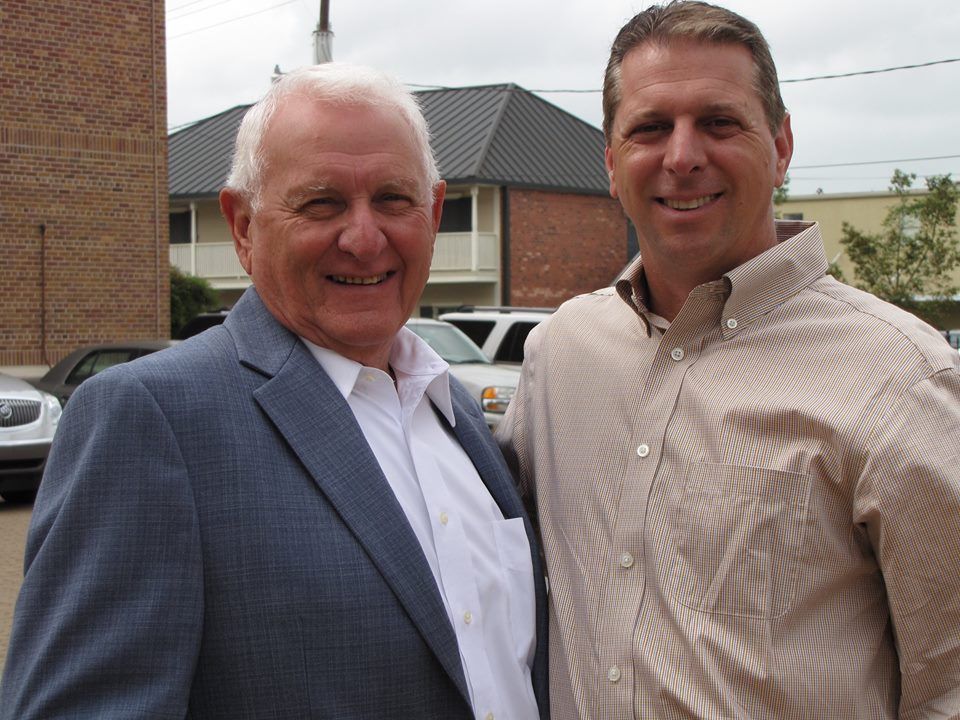Wallace "W.D." Cotton
March 13, 2008Theatre
March 17, 2008A passion for his country may have been what inspired Keith Benoit to enter the Navy, but a passion for survival is what inspired him to enter into business for himself.
After military service, Benoit began a brief career in sales. A few years later, he was bitten by the “survival bug” and started doing consulting work from home.
In 1984, Benoit created a new dimension of safety training for the offshore-oil industry market in the Tri-parish area, Consulting & Safety Specialists Inc.
In order to meet the demands of his growing business, Chief Operating Officer JoAnna Mayon said much of Benoit’s consulting work was focused on water survival.
Twenty-four years have passed since Benoit first opened his doors in Thibodaux, and many new competitors have entered into the market. Mayon said the company is still one of the largest facilities with one of the most diverse curriculums in the United States.
“We offer over 150 courses that are taught right here in this facility,” she said.
More than 7,900 students entered the academy’s program in 2007.
The academy started using the Modular Egress Training Simulator (METS) course in 2006 as part of the Helicopter Underwater Egress Training (HUET). And at any given time the course enrolls more than 1,000 students.
“Students or pilots receive the most realistic training available,” Mayon said. “METS is the most advanced underwater escape training simulator available in the world today.”
The METS simulates a helicopter crash into a body of water. This particular water survival course is an eight-hour class. The simulator is an elongated capsule that is placed in the academy’s pool and passengers are taught how to escape in emergency situations before becoming completely submerged.
The school’s Industrial Fire Fighting program is another class in high demand. The school boasts the most extensive fire grounds in Louisiana. More than 400 students took the training class last year.
“We have nine fire props that are capable of four scenarios each,” Mayon said. “So students get a chance to work with 36 different types of fires from the props we have on our grounds.”
Consulting & Safety Specialists offers training on state-of-the-art equipment that has not even been mandated in the Gulf of Mexico yet, she said.
In 1996, the Viking Evacuation Chute was a relatively new devise that allows for quick evacuation from an oilrig, in case of emergencies.
The chute is a netting system attached to a fire and explosion-proof structure that leads down to water level. “People come from all over, nationally and internationally for this training,” she said.
Mayon explained that just because a company pays for the course, the students still have to successfully complete the training.
“These are pass/fail classes,” she said. “And you do have to pass. It’s too delicate of a situation to simply pass people through. They have to leave educated and knowing what to do.”
All of the instructors at the academy are extensively trained and certified from various governing entities. For safety measures, at least four people, two instructors and two divers, are in the pool ready to assist students who become overwhelmed or cannot escape from the simulator.
After successful completion of the one-day course, the U.S Coast Guard awards students a certificate.
The academy not only offers courses for offshore companies, but for the general public as well. Mayon believes that his ServSafe course offers something everyone can benefit from. The course’s main focus is how to cook correctly.
“A lot of people don’t know that you have to cook certain foods at certain temperatures to eliminate health risks,” she explained. “Food is much more susceptible to bacteria if it’s not cooked properly.”
Another course that may be of interest to the general public is the school’s first-aid and CPR class, according to Mayon.
“It’s something that everyone should know. It could help protect your family, friends, co-workers and everyone else you come in contact with,” she said.






